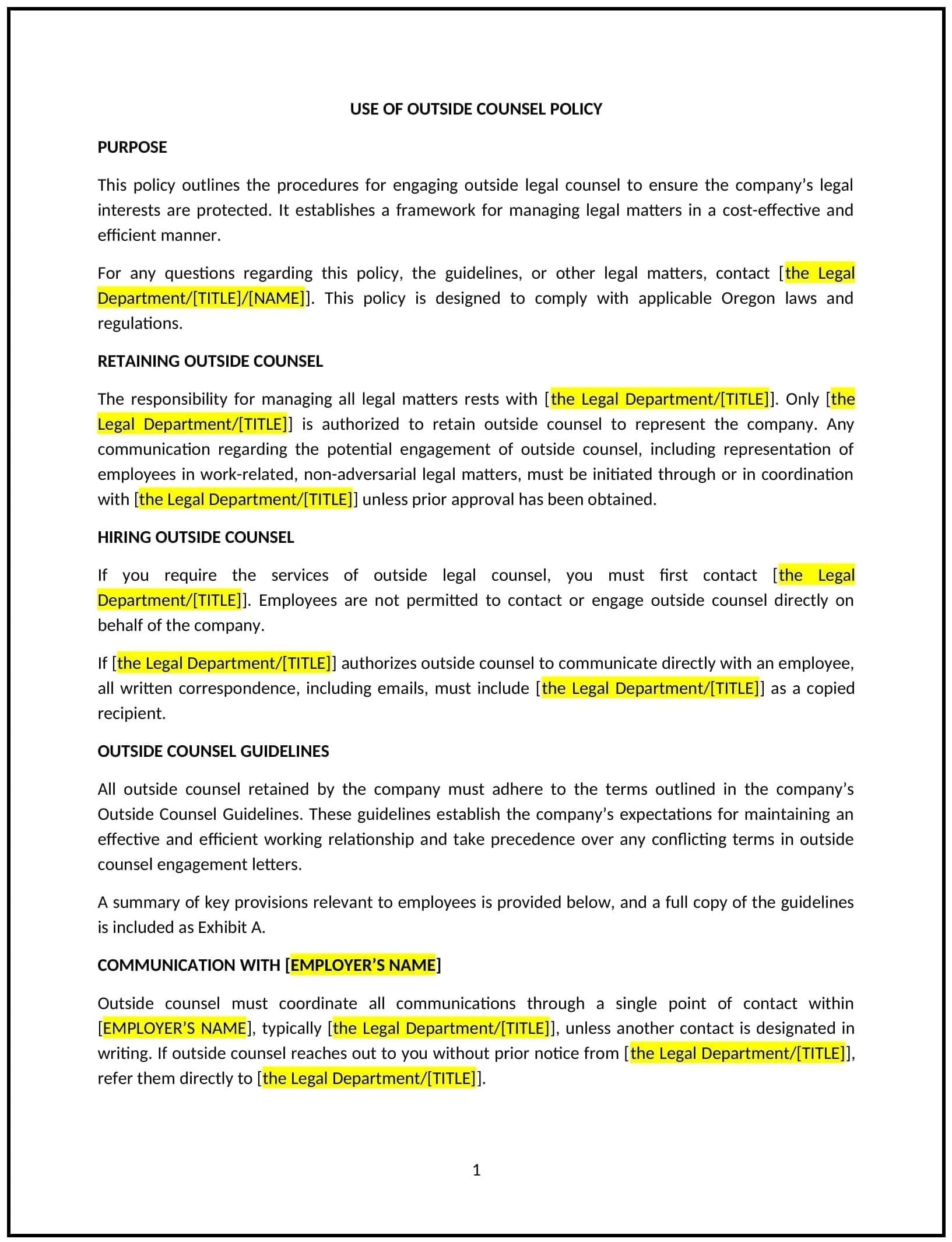Use of outside counsel policy (Oregon): Free template
Got contracts to review? While you're here for policies, let Cobrief make contract review effortless—start your free review now.

Customize this template for free
Use of outside counsel policy (Oregon)
This use of outside counsel policy is designed to help Oregon businesses manage legal services efficiently by outlining guidelines for engaging, utilizing, and overseeing external legal counsel. The policy ensures legal matters are handled effectively while maintaining cost control and clear communication.
By implementing this policy, businesses can streamline their legal processes, reduce risks, and make informed decisions when using external counsel.
How to use this use of outside counsel policy (Oregon)
- Define scope: Specify the types of legal matters for which outside counsel may be engaged, such as litigation, regulatory compliance, or contract negotiations.
- Establish authorization procedures: Identify who within the business has the authority to approve the engagement of outside counsel.
- Set selection criteria: Outline the qualifications and experience required for selecting legal counsel, including familiarity with Oregon-specific laws.
- Develop engagement agreements: Require formal agreements detailing the scope of work, fee structures, and communication protocols.
- Monitor performance: Implement procedures to review the progress and effectiveness of legal counsel regularly.
- Address confidentiality: Ensure outside counsel adheres to strict confidentiality standards to protect sensitive business information.
- Review regularly: Periodically assess the policy to align with changes in business needs or legal landscapes.
Benefits of using this use of outside counsel policy (Oregon)
Implementing this policy provides several advantages for Oregon businesses:
- Enhances cost control: Clear guidelines prevent unnecessary legal expenses and optimize resource allocation.
- Ensures quality: Standardized selection criteria ensure the business works with qualified and experienced legal professionals.
- Improves efficiency: Streamlined procedures simplify the process of engaging and managing outside counsel.
- Protects business interests: Confidentiality and oversight measures safeguard sensitive information and ensure legal work aligns with business goals.
- Reflects Oregon-specific practices: Tailoring the policy to state laws and business environments ensures its relevance and effectiveness.
Tips for using this use of outside counsel policy (Oregon)
- Communicate guidelines: Share the policy with all relevant employees, especially those involved in decision-making for legal services.
- Foster collaboration: Maintain open lines of communication between internal teams and outside counsel to align legal strategies with business objectives.
- Track expenses: Monitor and evaluate legal costs to ensure they align with agreed-upon budgets and deliverables.
- Evaluate periodically: Regularly review the performance of outside counsel and gather feedback to inform future engagements.
- Leverage expertise: Use outside counsel for specialized legal matters that exceed the capabilities of in-house resources.